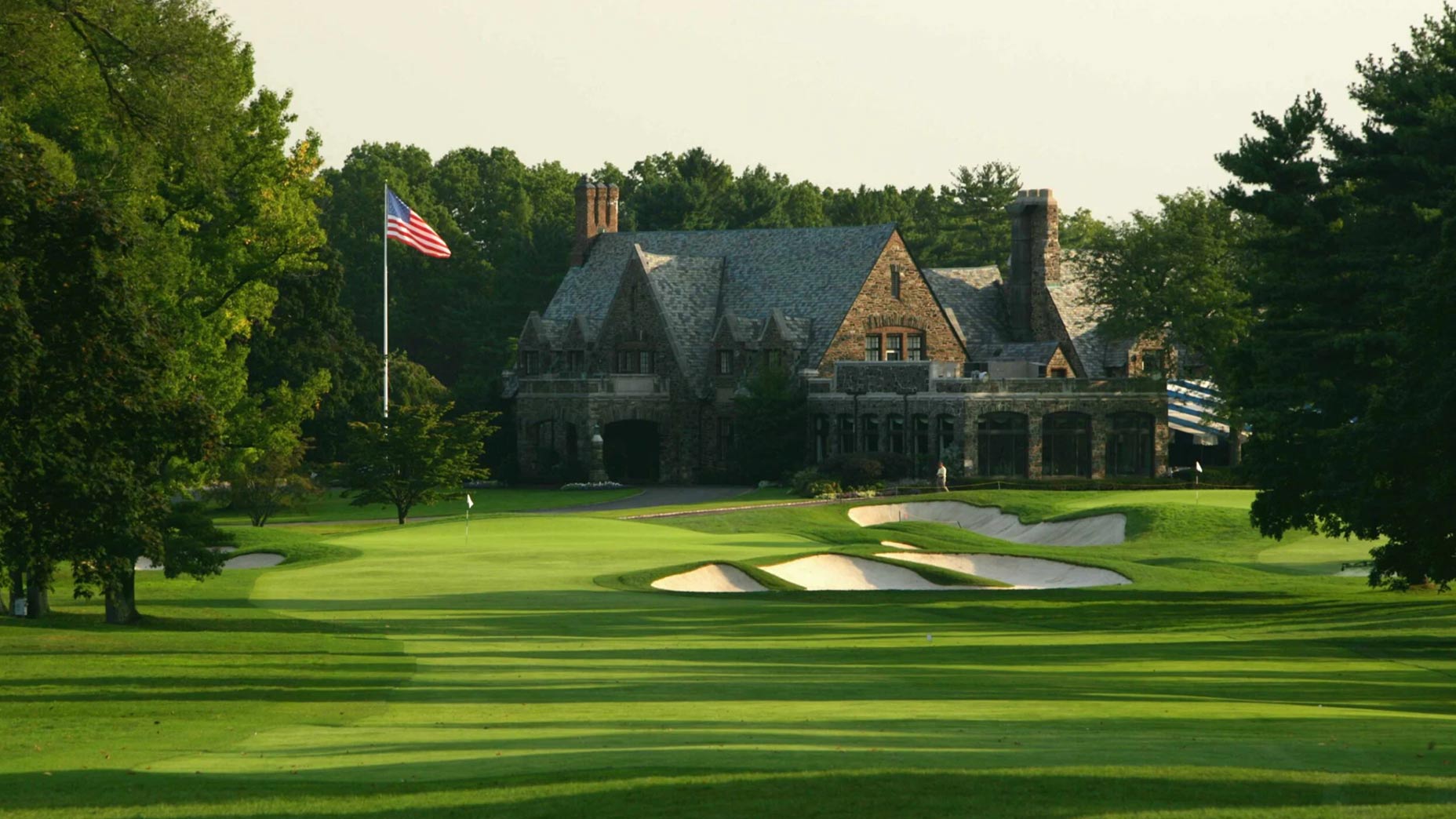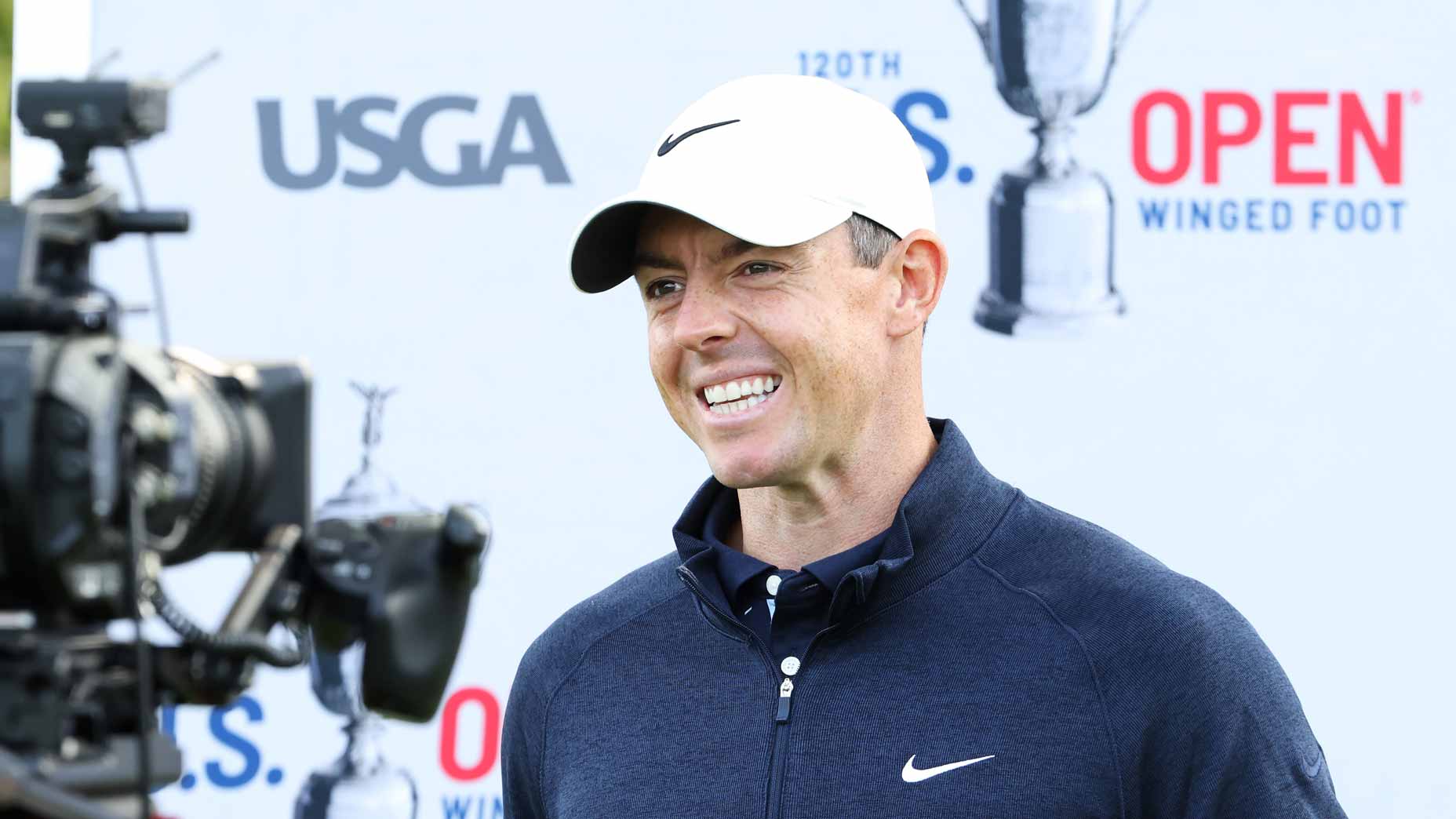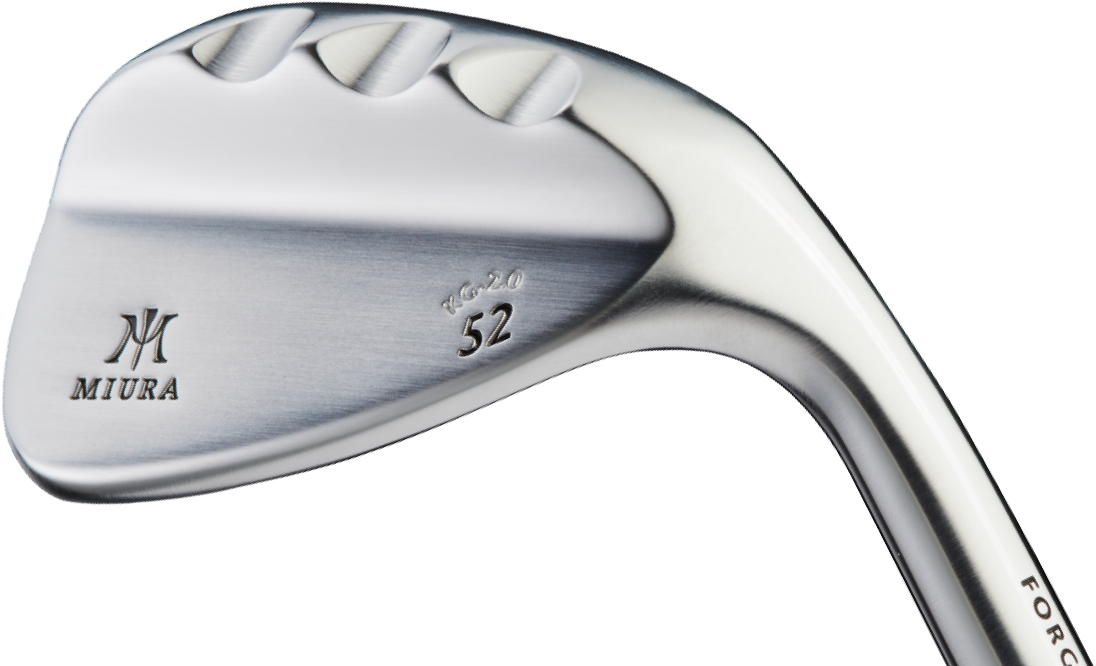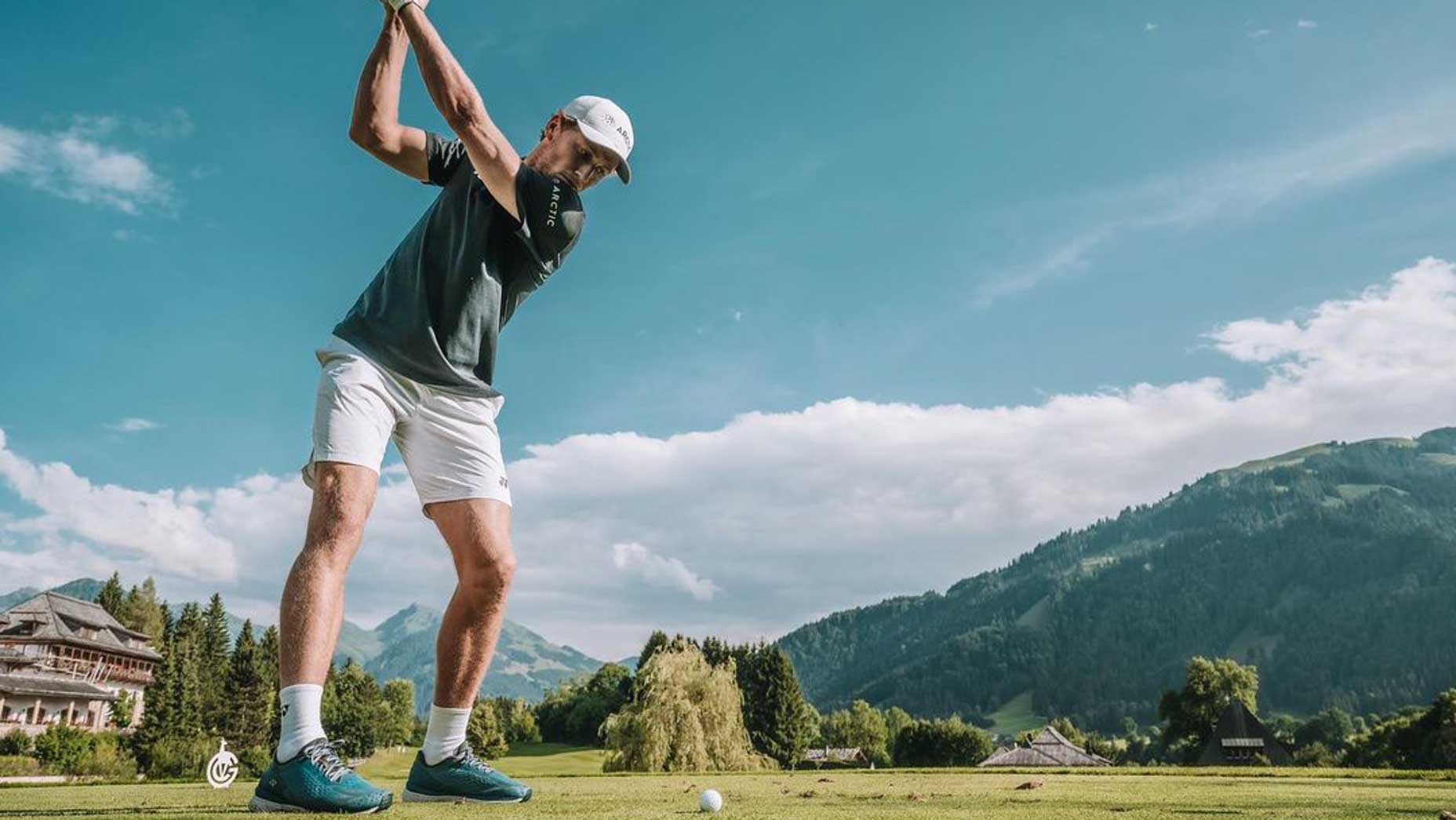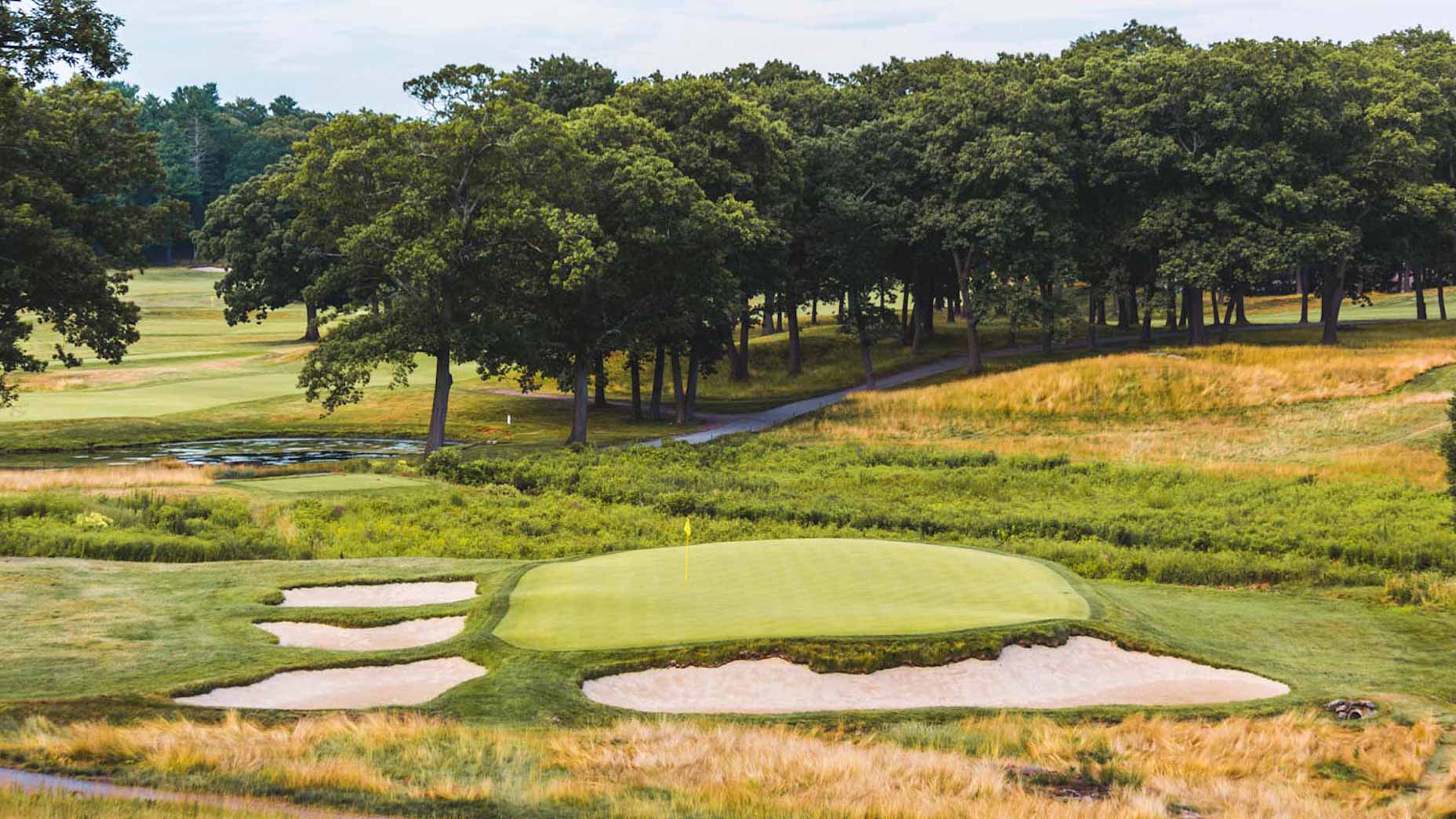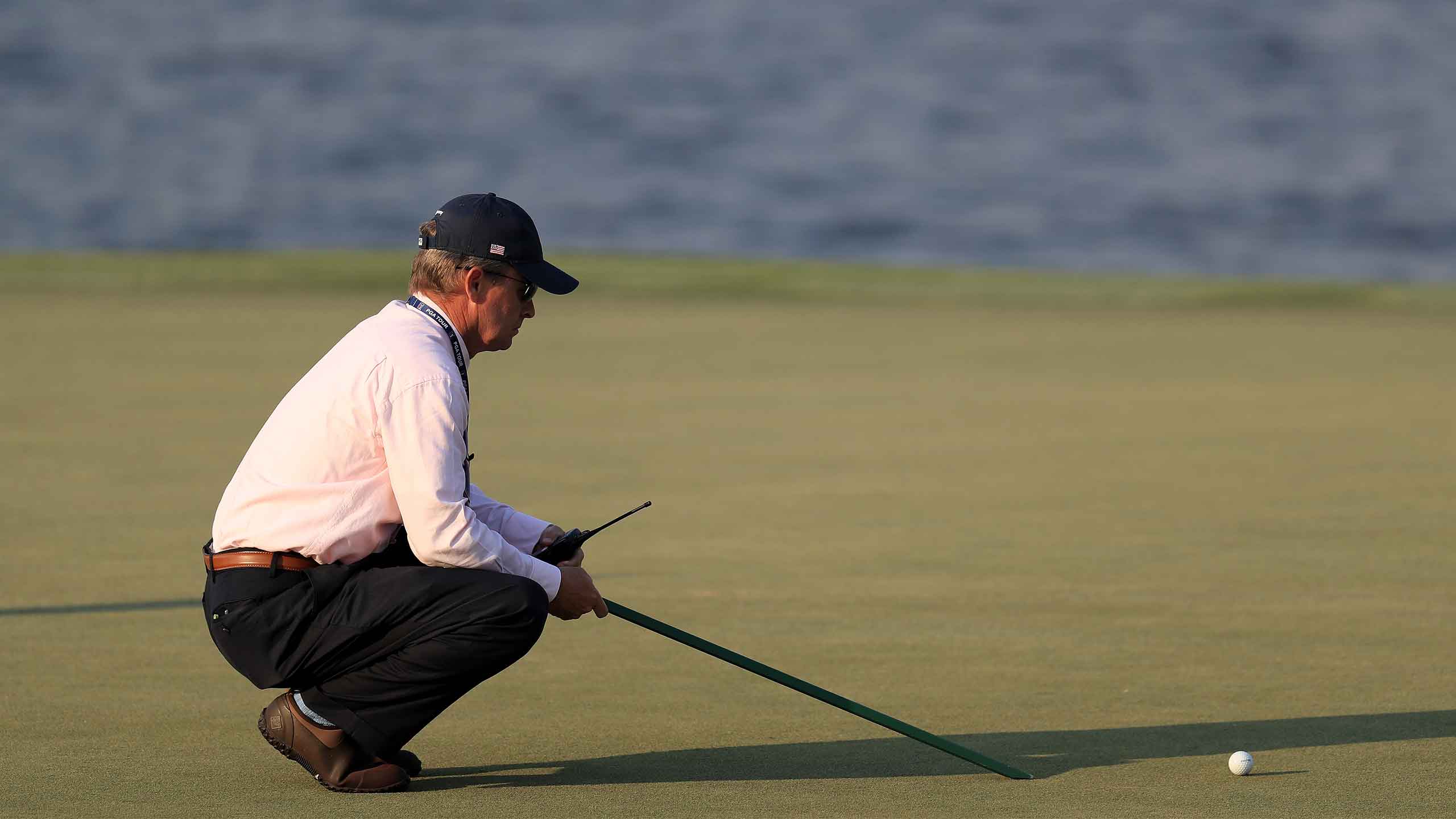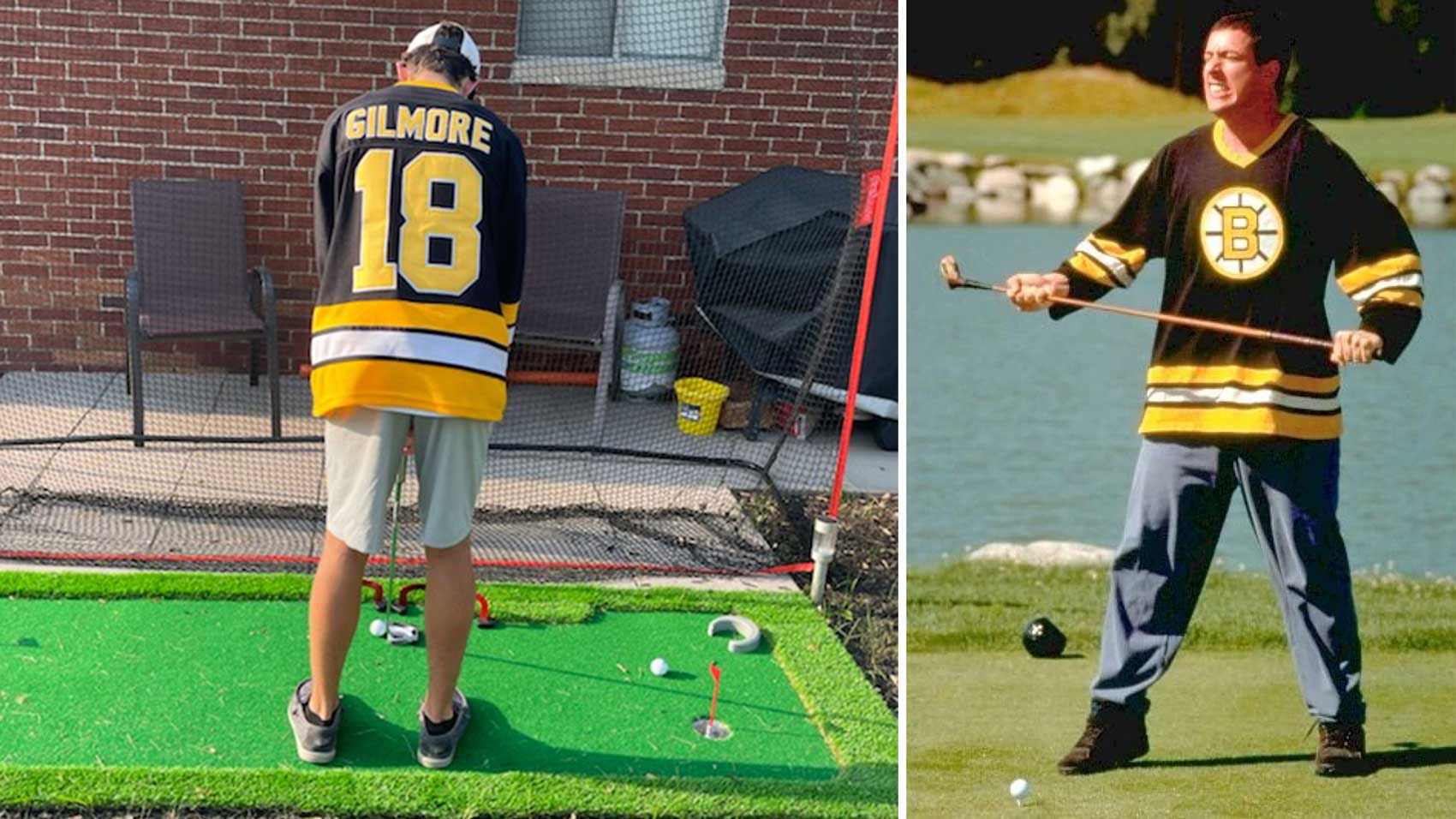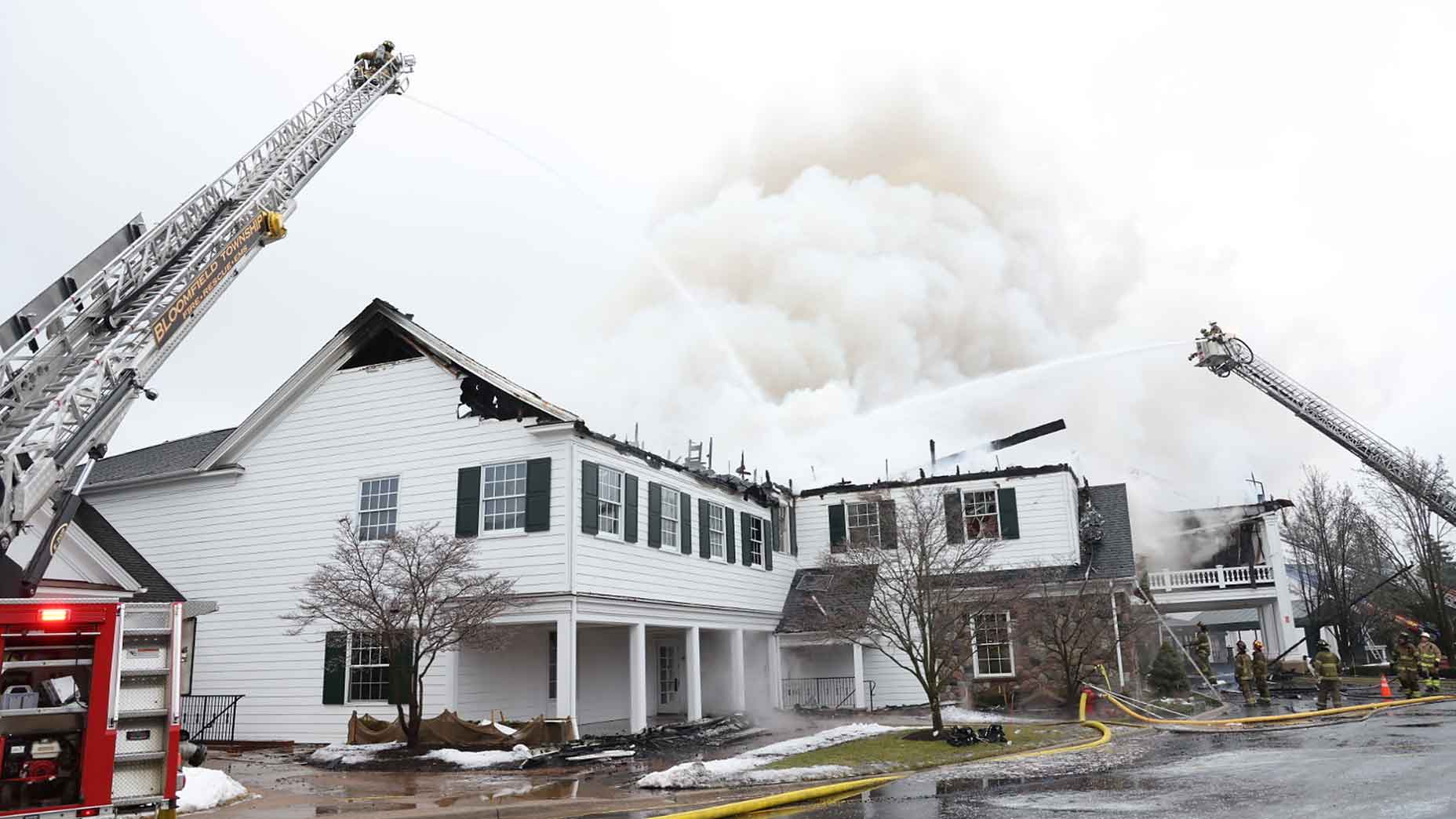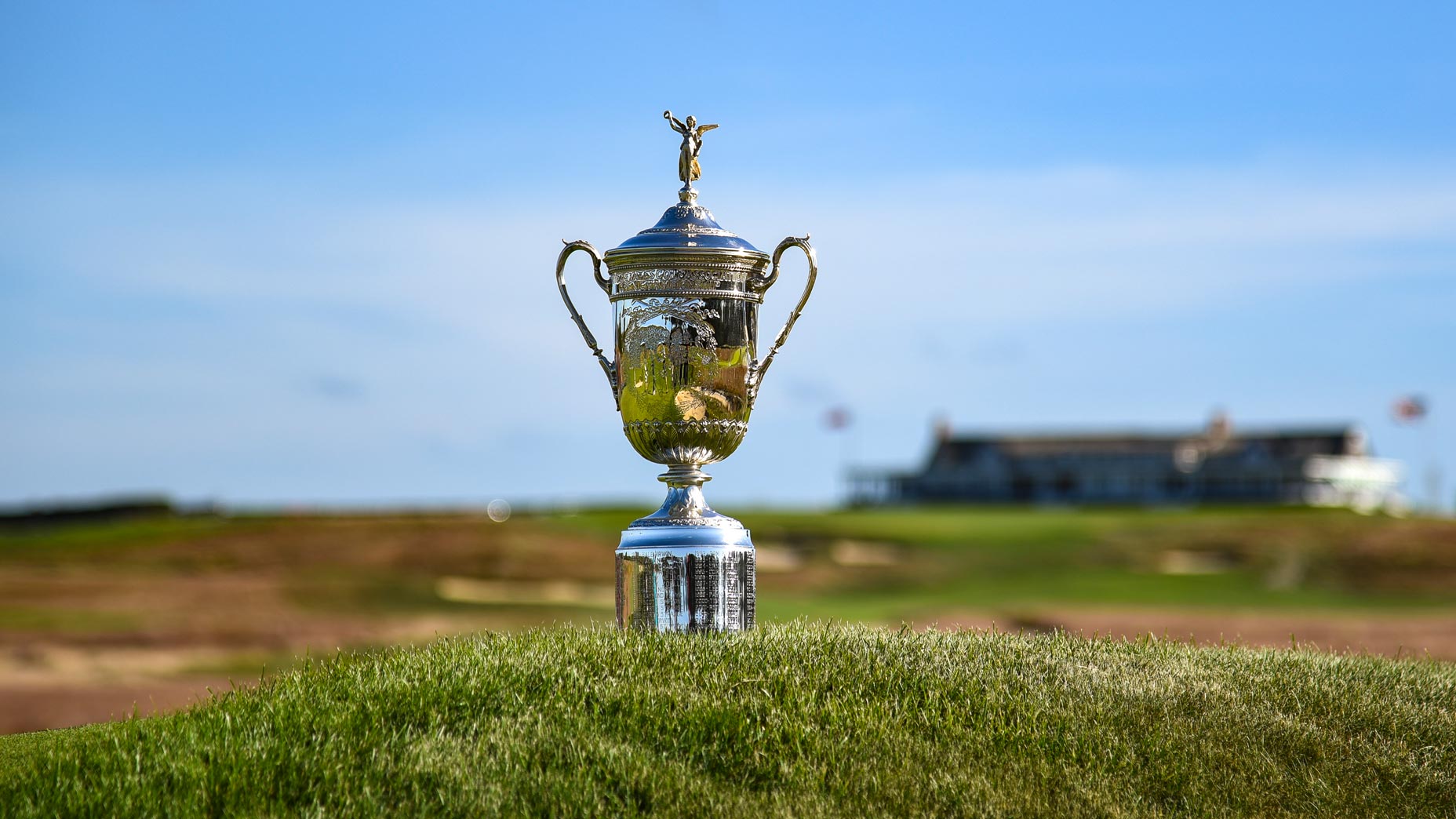In this installment of the #AskAlan mailbag, GOLF senior writer Alan Shipnuck answers all your questions about this week’s U.S. Open at historic Winged Foot Golf Club.
For all the talk of Phil’s finish at Winged Foot in 2006, I can’t help but wonder if Merion was even worse. He couldn’t make a putt outside of five feet all weekend. Two double bogies on the front nine in the final round. Two bogies on the back hitting wedges. Only lost by 2. Ouch! — @tombagjr
You’re not wrong, but Winged Foot will always be the quintessential collapse because it was so clearly in Phil’s grasp and then he had a mental, physical, and spiritual breakdown for the ages. His drive — and the decision to hit driver — was a head-scratcher but I’m still haunted by the second shot. All Mickelson has to do is wedge back into the fairway, laying up to his favorite number. Then, execute a 90- or 100-yard wedge and he’s left with a 6- or 10- or 15-footer to win the U.S. Open. Worst case, he taps in for bogey and goes to a playoff against a youngster with nothing like his pedigree. Anyway, just for fun, let’s rank Phil’s runner-up finishes by ghastliness:
6. Pinehurst ’99. Phil acquitted himself nicely on Sunday but got beat by a tough, cagey competitor in Payne Stewart. No shame in that
5. Bethpage ’02. Played his heart out on a brutal course — Tiger was simply untouchable.
4. Bethpage ’09. Bogeyed two of the last four holes to get outshined by Lucas Glover, to say nothing of David Duval (!) and Ricky Barnes.
3. Shinnecock ’04. Phil played some of the best golf of his life and led by one stepping to the 71st tee but made a shocking double-bogey on a pretty straightforward par-3.
2. Merion.
1. Foot.
If you’re ever invited to a member-guest at Winged Foot, what would you shoot? How much higher would you shoot this week? — @david_troyan
I played it last year for the first time and hit the ball pretty well and made a few putts to shoot 84, a decent result for a jet-lagged 7. I was with some older gents and was happy to play the white tees, which still weigh in at 6,592 yards. (Black tees tip the scales at 6,928 and Blues are 7,258. The Open is stretching it out another 300 yards or so.) There was some rough but nothing like this week — that would add another dozen shots, easily. Throw in the speed and firmness of the greens and I would have to play my butt off to break 100, and that’s from the white tees.
Will anyone shoot under par this week? — @Schonaaaah
No.
The Foot is an old-school, brawny, serious, gin-rummy-in-the-locker room kind of club. Cousins are … Shinny? Oakmont? — @MarVistaPete
Oakmont, for sure. Pine Valley, too; even without the Open pedigree it still reeks of that same ethos. (Or maybe that’s just the witch hazel in the lockerroom.) Those are really the big three of macho, old-timey East Coast citadels. Shinnecock has a breezier vibe, and Augusta National’s membership doesn’t boast nearly as many good sticks. There are plenty of other neat old clubs but they don’t have the same aura or grandeur.
If Winged Foot were an NFL team which team would it be? — @Shawking1513
2000 Ravens.
Is Pinehurst every 5 or 7 years all that interesting/compelling? Is a rotation that great of an idea for the U.S. Open? — @TBromfman
I’ve come to like the idea of a pretty tight rotation, like at the Open Championship. I’m a fan of both Chambers Bay and Erin Hills, but it just didn’t quite feel like a U.S. Open when they hosted. Instead of being the U.S. Open Lite, the PGA Championship should focus on new and exciting venues while the U.S. Open concentrates on the old classics; that would help both of their identities. The no-brainers for the Open rota are Pebble, Winged Foot and Oakmont. I’m adding Riviera as well. Pinehurst No. 2 isn’t my favorite course but it has a special feel and I think it’s a fascinating tournament venue.
The Meaning of Winged Foot: The club’s exceptional courses aren’t the only thing that set it apartBy: Michael Bamberger
We also need the geographic diversity. It’s important to bring the national championship to the middle of the country so I’m putting Oakland Hills in my rota; it has a great pedigree and incredible bones, and the Gil Hanse restoration looks spectacular. That’s a rock-solid half dozen. I love Shinnecock but it just doesn’t seem to be working out from a setup standpoint and the logisitcs/infrastructure are a nightmare. But I kind like making every seventh year a different course, so we can mix it up and visit a Shinnecock or a refurbished Olympic or Bethpage or a return to L.A. North (which will be a home run in 2023).
Who is your dark horse this week? — @RealVBarbera
Chez Reavie. Maybe the straightest driver on Tour and also a top iron player.
Based on what we’ve seen lately, especially his putting, Tiger has no shot at winning another Open….right? — @ASWinborne
Let’s call him a long shot. Which means, of course, that he’ll probably shock all of us and contend. In general, long, tight setups draped in rough are pretty much the worst-case scenario for late-period Tiger. And the wild greens at Winged Foot will severely test his putting, which, as you note, has been a bugaboo for months. But he’s still Tiger Woods and has reinvented himself plenty of times before so never say never.
Three inches of rough is very penal; 5 inches of rough is a crime against golf. Can you change my mind, or do you concur? — @CountDownDave
I have mixed feelings about this. It’s true that tangly, hack-out rough takes a lot of skill out of the game: there is little hope for daring recovery shots or artistry around the greens. Fifty-one weeks a year I’m not a fan of brutally penal rough, but this is the U.S. Open — there should be pain and suffering and a premium on precision.
Why Rory McIlroy isn’t buying the ‘hype’ about Winged Foot’s brutal setupBy: Kevin Cunningham
Even big, bad Winged Foot is laughably short for modern pros so the rough has to be extra gnarly for par to have any meaning. Again, in other weeks I don’t really care about the winning score, but this is the national championship and par has always been a historically important measuring stick. To summarize: I don’t like 5” rough but I love it this week.
Over/under the age of the winner is 26? — @TStavely13
Hmm, the under includes Rahm, Morikawa, and Sungjae. The over is JT, Rory, DJ, Webb, Cantlay, A. Scott, Berger, Tommy Lad, Abe Ancer and plenty of others. (X and Fitzpatrick are 26.) Gotta take the over.
How many cups of Coffee for Wellness will Phil need to win this week? — @jasleeack
Three Poppie’s Ponds.
On their best day, who would win: 1. DJ, 2. Rory, 3. JT, 4 Rahm? — @WilksOcker
DJ, by a couple of shots.
Hi Alan, long time, many time here. Question for you: disregarding logistics, time zone, length, etc (ie, we’re in fantasy land), pick a golf course that’s never held a U.S. Open that you think would be a killer place to have the event. Thank you. — @harryarnett
It has be Pine Valley, for the sheer awesomeness of the course and the mystique of the place. I’d also love to see it at Sand Hills — such a unique, important design and given all the surrounding land they could stretch it to 9,000 yards to preserve the shot values the architects intended.
Since the 2021 season will include two U.S. Opens and two Masters, how exactly do you propose players account for this in next year’s POY voting? — @kevin_demsky
Yeah, the PGA Tour and PGA of America did a disservice to us all by ending their POY tallies with the FedEx Cup instead of waiting until after the Masters. As usual, leave it to the GWAA to clean up the mess, as we won’t vote until the end of the year. But the plethora of big events (6 majors plus a Players) does make the 2020-21 voting quite intriguing.
Why don’t the straightest hitters win U.S. Opens? — @cameronpercy1
Well, Hale Irwin snagged three, Curtis Strange and Andy North two apiece. Tom Kite, Corey Pavin, Jim Furyk…it happens, but, to your point, not as often as you might think. Power is an advantage in every circumstance, and especially out of the rough. Even a petite piker known for hitting it straight is going to be in the rough a good amount at a U.S. Open, and with their pencil-necks and spindly arms that’s a problem. Also, when setups are really tough every player is going to miss a bunch of greens, so scrambling is paramount; that’s a very different skill set than hitting it straight. (No wonder Mickelson has contended so consistently.) And maybe the monotonous straight hitter lacks a certain panache or creativity or shotmaking ability that separates the very best players.
Plenty of premium this week on accuracy off the tee. In professional golf, where standards are so high, what makes it so difficult to find the fairway consistently for these ace golfers? — @SportaSmile
Ya know, this bugs me, too. To cite two handy examples, Tiger and Phil are two of the most talented players ever to touch a club, they’ve devoted their lives to chasing excellence, they have access to the top instructors and best gear…and they barely hit half of their fairways. It’s maddening. It can’t be that hard!
How many strokes must one win by in a major for it to be considered historically impressive? 5? — @oiler3535
Given that most are won by one stroke, I’d say a 3-shot win is a stunning performance. Anything more than that is a monumental achievement.
How many U.S. Open venues have you sneaked on to play? — @ScottMichaux
I went through the front door, homey. In the order in which they first hosted the Open: Shinnecock, Garden City, Philly Cricket, Baltusrol, Oakland Hills, Winged Foot, Merion, Riviera, Olympic, Pebble Beach, Congressional, Pinehurst, Bethpage, Torrey, Chambers Bay, Erin Hills. Missing a few too many, to be honest. I’ll try harder. I owe it to the readers.
Latest In News

Alan Shipnuck
Golf.com
GOLF senior writer Alan Shipnuck writes longform features and a monthly column for GOLF Magazine and has his own vertical on GOLF.com entitled “The Knockdown,” which is home to podcasts, video vignettes, event coverage and his popular weekly mailbag AskAlan. He is the author of five books on golf, including national best-sellers Bud, Sweat & Tees and The Swinger (with Michael Bamberger). Shipnuck is very active on Twitter, with a following of 50,000.

